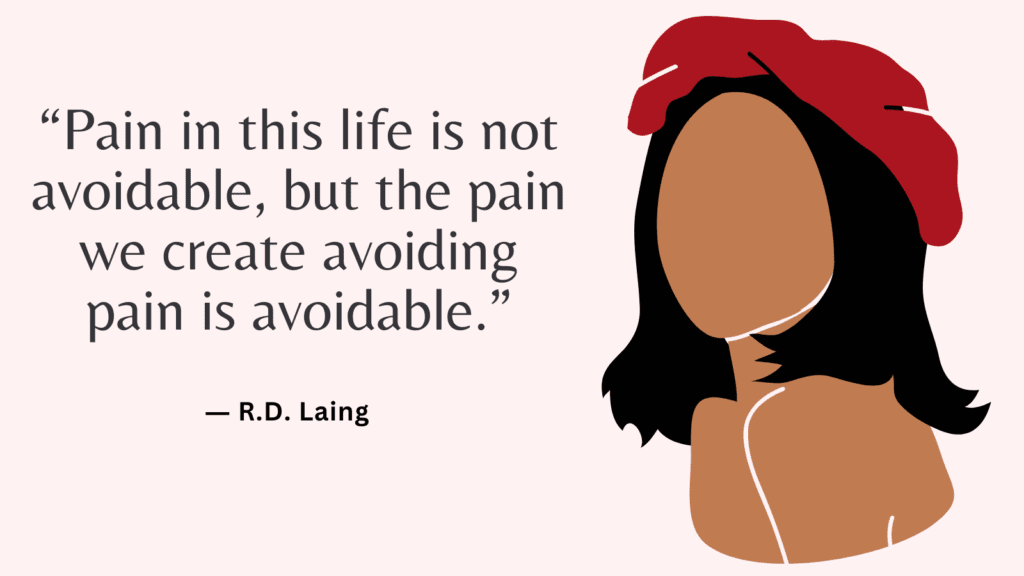In this post, you’re going to discover mother-son enmeshment signs.
What Does Enmeshment Mean?
Enmeshment is a term used to describe a dysfunctional relationship where boundaries between individuals are blurred or nonexistent.
In an enmeshed relationship, individuals are overly involved in each other’s lives and emotions to the point where it becomes difficult for them to separate their own feelings and identities from those of the other person.
This can lead to codependency, lack of individuality, and difficulty in establishing healthy relationships outside of the enmeshed dynamic.
Enmeshment can occur in any type of relationship, including romantic partnerships, parent-child relationships, and friendships.
Related: Codependency And Enmeshment: 9 Signs You May Be In An Enmeshed Relationship
Enmeshment Mother-Son
Enmeshment between a mother and son occurs when there is an unhealthy attachment between them that crosses normal emotional boundaries.
This type of relationship can result in the son becoming overly dependent on his mother, with little to no sense of self, individuality or autonomy.
Related: Caregiving vs Caretaking (The Savior Complex)
Mother Son Enmeshment Signs
Enmeshment occurs when boundaries between two people become blurred and unhealthy, leading to a lack of individuality and autonomy.
Mother son enmeshment is a type of enmeshment where the closeness between a mother and son goes beyond the healthy parent-child relationship.
Here are some signs of mother son enmeshment:
1. The mother relies on her son for emotional support and validation, treating him more like a partner or friend than a son.
2. The son’s life revolves around the mother, and he has little independence or autonomy.
3. The mother may display jealous or controlling behavior towards her son’s romantic partners, feeling threatened by them.
4. The son feels guilty if he spends time away from his mother or does not prioritize her needs above his own.
5. The son may have difficulty forming relationships outside of his relationship with his mother.
6. The mother may be overly involved in her son’s life, such as making decisions for him without his input or micromanaging daily activities.
7. The mother and son may share inappropriate physical contact or emotional intimacy.
Related: How To Overcome High Functioning Codependency?

Causes of Mother-Son Enmeshment
Mother-son enmeshment can have various causes, including:
1. Overprotection: When mothers become overprotective and demand too much control over their sons’ lives.
2. Emotional dependency: If a mother depends on her son emotionally to fulfill her own needs for love and support, the son may feel responsible for her happiness.
3. Absent father figure: When the father is missing or absent from the family, the mother may rely heavily on her son for emotional support and companionship.
4. Trauma or loss: When a family has experienced a traumatic event or significant loss, mothers may become overprotective of their sons.
5. Culture or family traditions: In certain cultures and families, mother-son enmeshment may be considered normal or expected.
It is important to note that mother-son enmeshment can impact a son’s ability to form healthy relationships and can lead to emotional and psychological issues later in life.
Related: What Causes Codependency? Top 6 Reasons You May Be Codependent
Effects of Mother-Son Enmeshment
Mother-son enmeshment can have several effects, including:
1. Emotional dependence: The son may become emotionally dependent on his mother and struggle with independence and self-sufficiency.
2. Difficulty forming healthy relationships: The son may struggle to form healthy relationships with others, including romantic relationships, as he may prioritize his relationship with his mother over others.
3. Limited social development: The son may have limited social development as a result of being overly focused on his relationship with his mother.
4. Guilt and anxiety: The son may experience guilt and anxiety when attempting to assert his independence or prioritize other relationships outside of his mother.
5. Resentment: Over time, the son may develop resentment towards his mother for inhibiting his growth and limiting his ability to develop healthy relationships.
It is important to note that enmeshment can occur in any relationship, regardless of gender, and can have significant negative consequences.
Related: Top 21 Codependency Journal Prompts
How to Overcome Mother-Son Enmeshment
Mother-son enmeshment can be a difficult dynamic to overcome, but it is possible. Here are some steps to help:
1. Identify The Enmeshment
Enmeshment occurs when the emotional boundary between mother and son is blurred, resulting in a relationship that is too close, too dependent, and ultimately unhealthy.
It’s important to recognize that there is an enmeshment before you can address it.
2. Set Boundaries
To overcome enmeshment, both the mother and the son need to establish healthy boundaries.
This may mean limiting the time they spend together, creating physical space, or setting emotional boundaries that allow each person to maintain their own identity.
Related: Top 10 Books About Setting Boundaries
3. Seek Professional Help
Enmeshment can be a complicated issue, and it’s often best to seek the help of a therapist or counselor.
They can provide objective guidance and support as you work through the issues at hand.
4. Work On Individual Growth
Both the mother and son may benefit from working on their own personal growth and development.
This can involve exploring new hobbies or interests, building new relationships, and learning how to communicate effectively with each other.
Related: Top 5 Self Love Exercises (+FREE Self-Love Resources)
5. Practice Self-Care
It’s important for both the mother and son to practice self-care and prioritize their own well-being.
This may involve making time for activities that they enjoy, learning stress-management techniques, or seeking support from friends or family members.

Conclusion
Enmeshment is a dysfunctional pattern in a family where boundaries between members are blurred or even nonexistent.
This results in family members being overly dependent on each other, having difficulty separating their own feelings and needs from those of others, and feeling a lack of individual identity.
To overcome enmeshment, therapy could be helpful for both the mother and son to establish healthier boundaries and gain a sense of individual identity.



